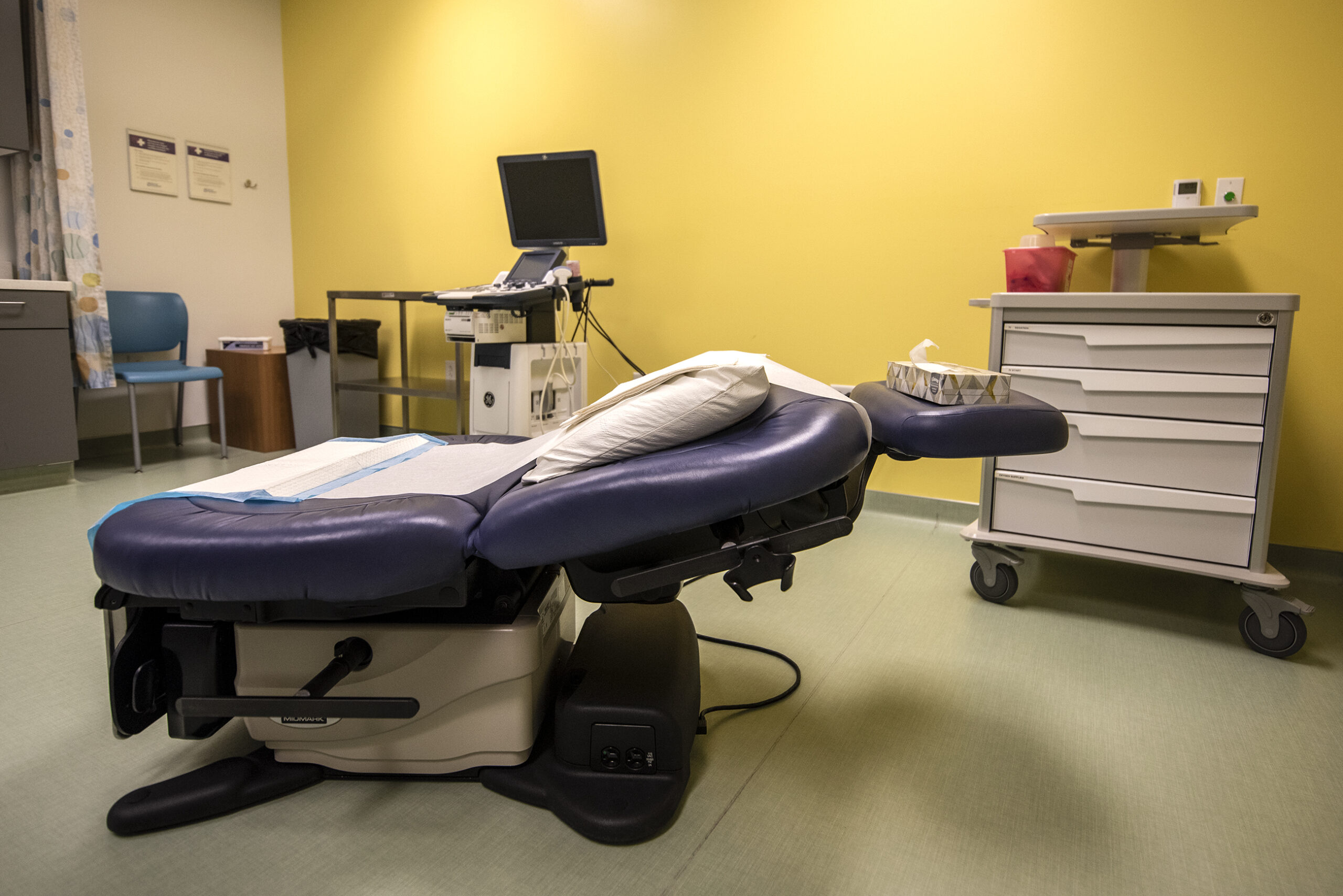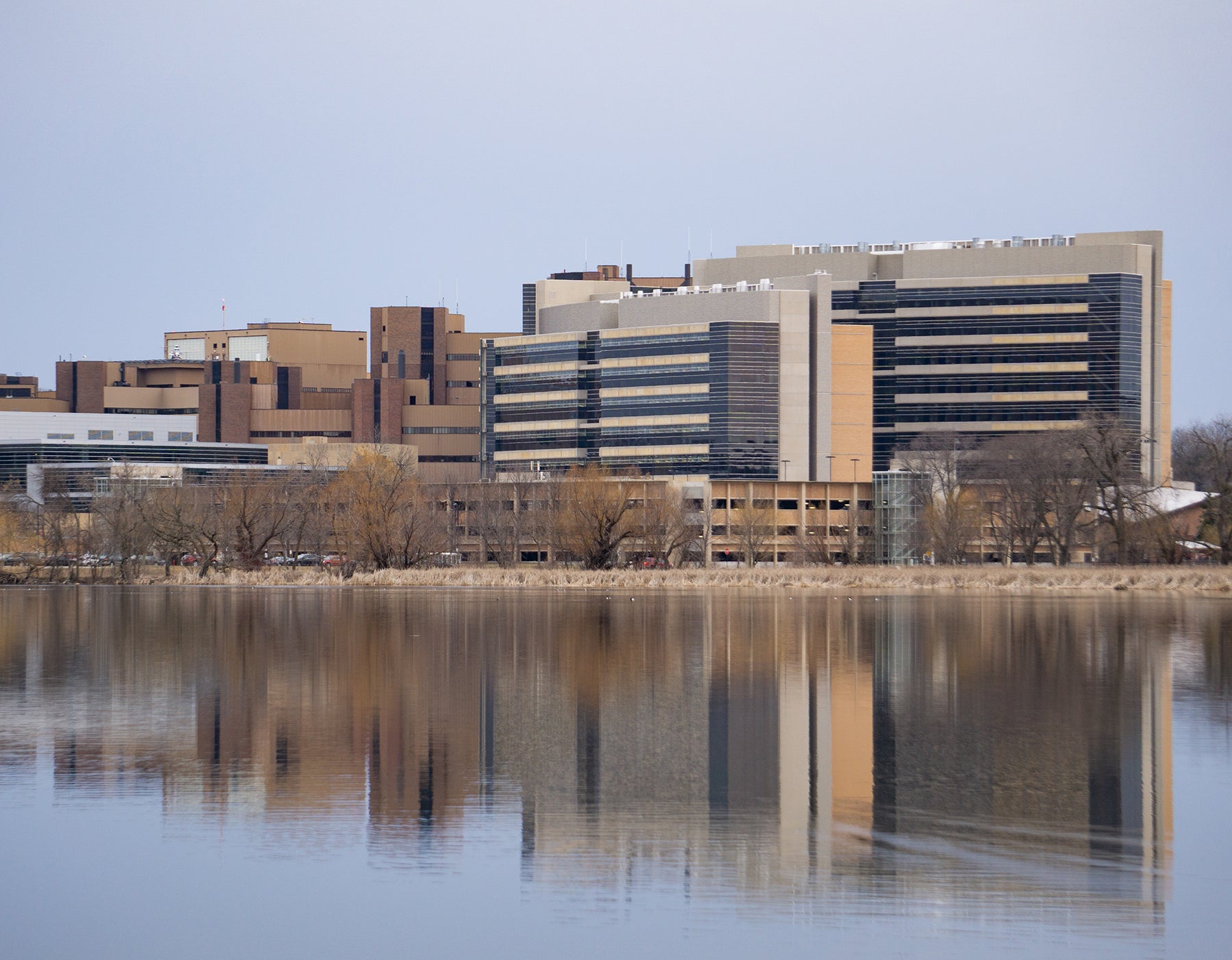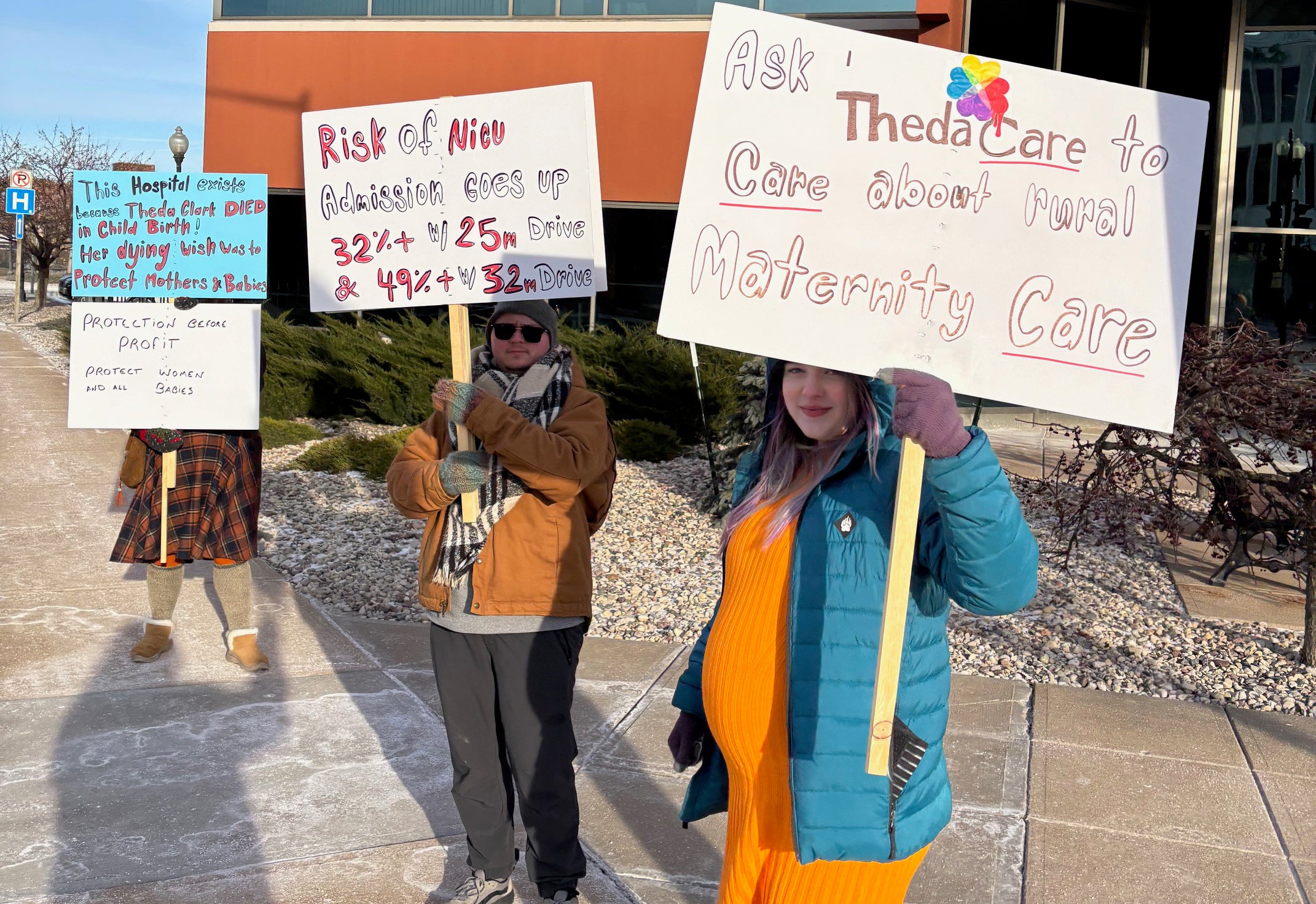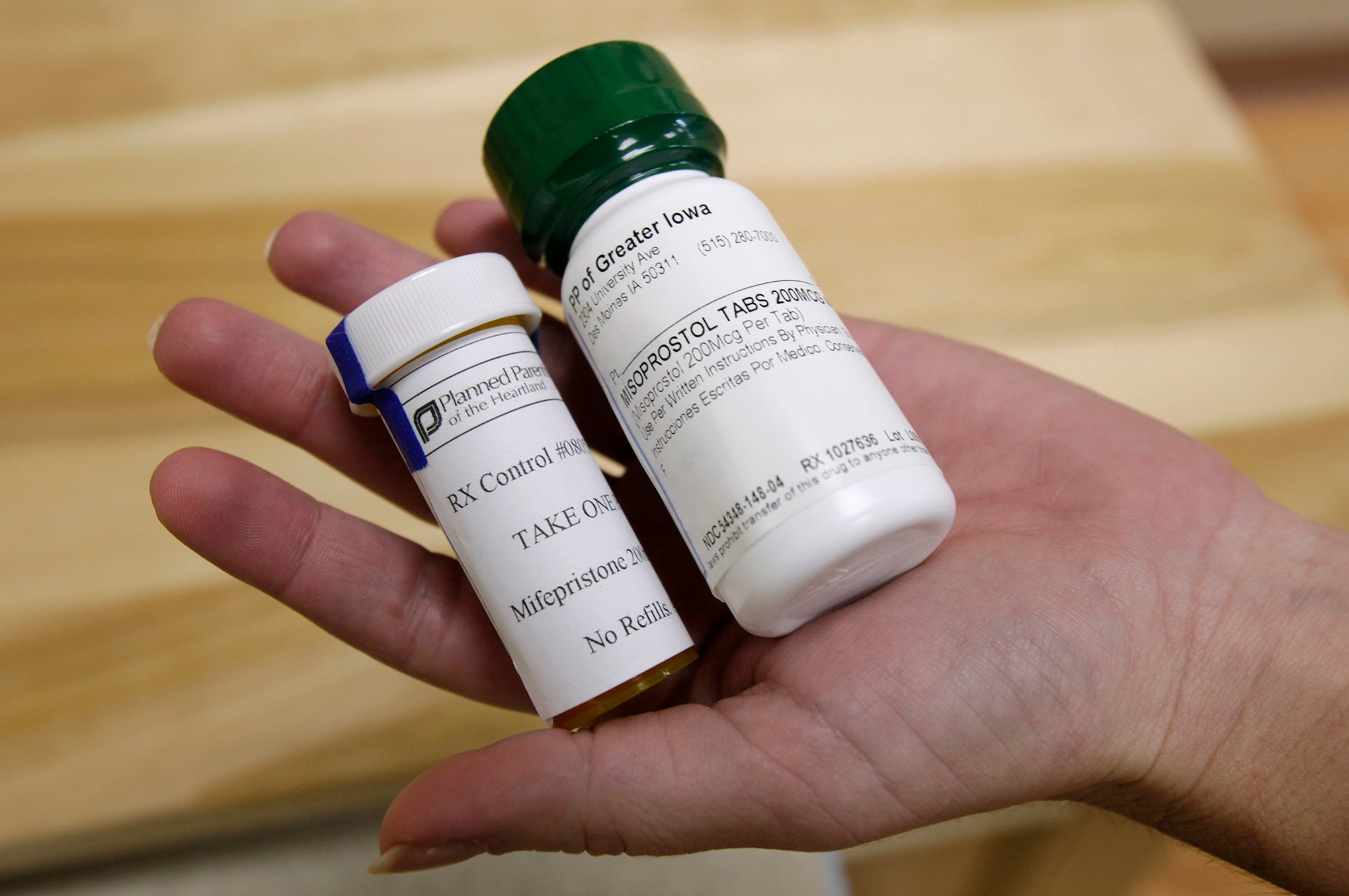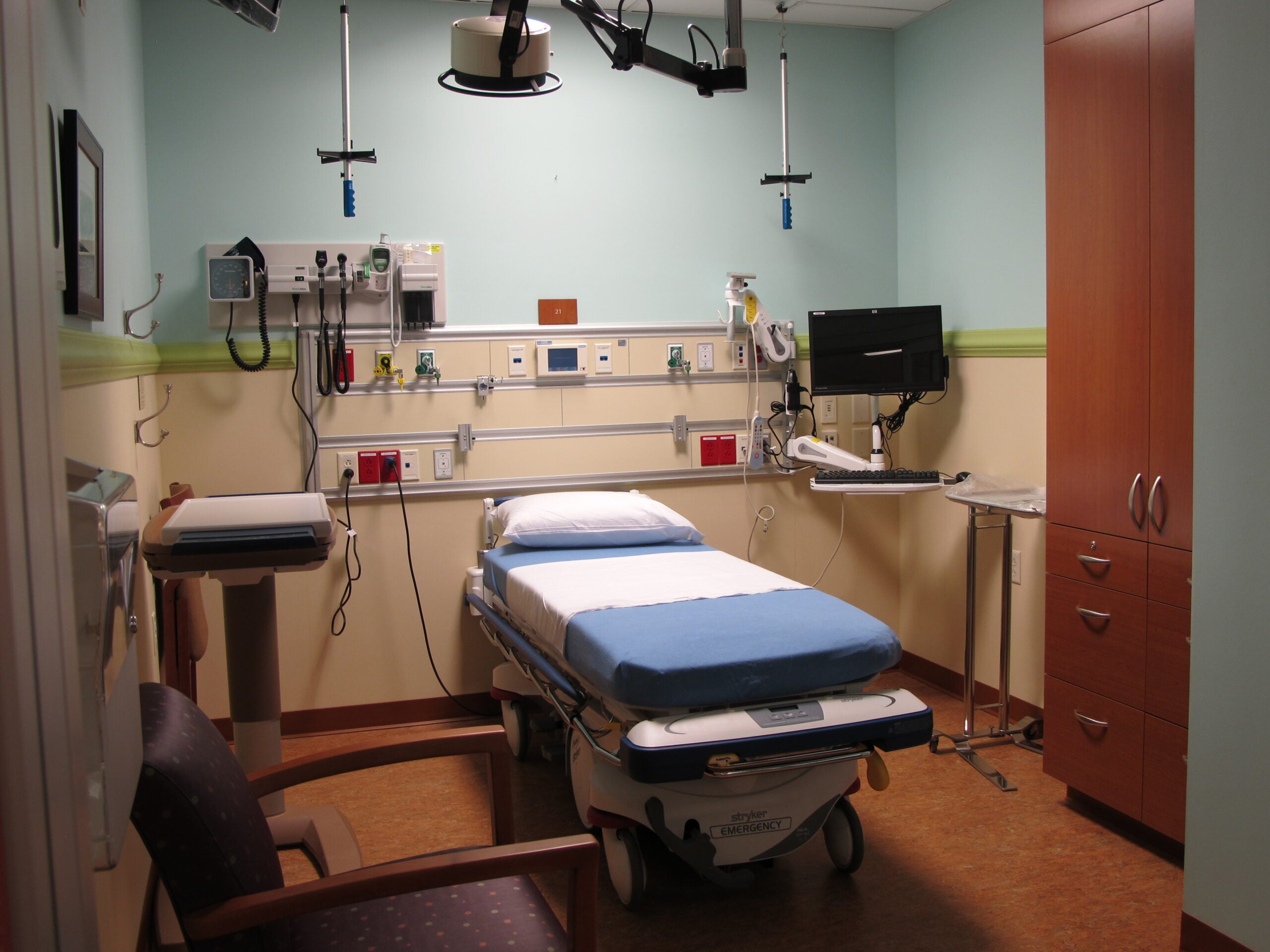Anticipating the end of Roe v. Wade, medical staff from Planned Parenthood of Wisconsin sought licenses to practice in Illinois earlier this year. Those doctors and nurses are now traveling to work south of the state border to deal with a flood of patients migrating there for abortion care.
After the U.S. Supreme Court overturned Roe v. Wade at the end of June, an 1849 law in Wisconsin made all abortions in the state illegal except when the pregnant person’s life is threatened.
Kristen Schultz, chief strategy and operations officer for Planned Parenthood of Illinois, said during a press conference on Thursday that her organization knew that the end of Roe v. Wade would mean thousands more patients would travel from Wisconsin for care at their facilities.
Stay informed on the latest news
Sign up for WPR’s email newsletter.
And that has been the case. She said the number of patients traveling from Wisconsin for care is now 10 times higher than the average before Roe was overturned.
To prepare for this wave, Schultz said the Illinois group put out a call to Planned Parenthood staff in Wisconsin earlier this year to see who might be willing to travel to Illinois to help provide care.
“I thought there would be four, maybe five, who would agree. And instead the majority of the team in Wisconsin providing abortion care have stepped up to travel to Illinois to serve that patient need,” Schultz said.
She said the details of the partnership have come together in the last three months, with Wisconsin staff traveling to the Illinois clinic for training, and clinicians like doctors and nurses applying for licensure in Illinois.
Schultz said the partnership has doubled the staff at the health center in Waukegan, Ill. about eight miles from the Wisconsin border.
Tanya Atkinson, president and CEO of Planned Parenthood of Wisconsin, told reporters on Thursday that the group’s Wisconsin clinics are still operating and can provide needed care prior to and after an abortion. That includes doing lab work or an ultrasound to determine how far along someone is in their pregnancy.
“We have also added patient navigators who can work with patients one on one and offer additional travel and financial support. We really want to remove those barriers for people as much as we’re able,” Atkinson said.
She said that includes providing financial support to Wisconsin residents who have to travel a long distance to reach Illinois, or who travel to another state where abortion remains legal, like Minnesota.
Dr. Allison Linton is one of the Wisconsin OBGYNs traveling to Illinois. She also serves as the associate medical director for Planned Parenthood of Wisconsin. Linton said during the press conference that she recently had a patient who came to a Wisconsin clinic for an ultrasound and to schedule an abortion in Illinois. The staff in Wisconsin coordinated with the Illinois clinic to set up the appointment and find financial support to help with travel costs. Linton said she was then able to care for that patient in Illinois a week later.
“The ability to provide this care and to provide that continuity of care was phenomenal, and something that I’m so thankful for this partnership for allowing me to do,” Linton said.
Atkinson said the Wisconsin group went through a legal review of the partnership to make sure they’re protecting patients and clinicians from possible legal action. But she said Wisconsin’s abortion ban only makes providing the procedure a felony in Wisconsin, and does not criminalize physicians in other states or those helping Wisconsinites access an abortion out of state.
Schultz said the partnership has allowed the Illinois group to expand abortion and family planning services across their state through telehealth. They hope to continue the partnership as long as Wisconsin staff are willing to make the drive.
Planned Parenthood isn’t the only Wisconsin group trying to increase capacity in Illinois. A new group in Dane County called the Rockford Family Planning Foundation recently purchased two clinic sites in Rockford, Ill., and hopes to start providing medication abortions as early as Friday, according to the Wisconsin State Journal.
Atkinson said her organization is not partnering with the Rockford group but said they share a common goal of expanding access for Wisconsin residents. And she said the fight is only just getting started.
“This momentum has to continue to build. This is a marathon now, both in Wisconsin and Illinois, across the country, in order to restore abortion access to anyone who needs it, no matter what,” Atkinson said.
Wisconsin Public Radio, © Copyright 2025, Board of Regents of the University of Wisconsin System and Wisconsin Educational Communications Board.
